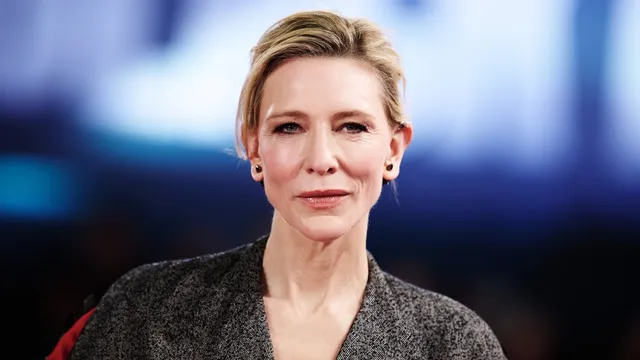
Cate Blanchett calls for a return to private award shows to protect celebrity privacy
2025-03-21 10:35- Cate Blanchett argues that award shows should not be televised to improve the privacy of celebrities.
- She recalls a time when award functions were more personal and less scrutinized, fostering genuine connections among attendees.
- Blanchett calls for a reimagined format for award shows that enhances celebration without external pressures.
Express your sentiment!
Insights
In a recent podcast episode aired on a popular platform, Cate Blanchett discussed her views on award shows and their impact on celebrity privacy. The actress, known for her remarkable performances, highlighted the shift in atmosphere from the late 20th century when such events were not filmed or broadcasted. There was an undeniable sense of presence and camaraderie among attendees, as they enjoyed each other's company without the fear of being recorded or scrutinized. Blanchett emphasized how this intimate environment allowed for genuine connection, creating an experience that was non-aggressive and more enjoyable. As notable celebrities over the years have made appearances at various award functions, the rise of social media and smartphones has transformed how these events are perceived and participated in. Blanchett's remarks shed light on the phenomenon of lip readers on platforms like TikTok, who scrutinize celebrities during interactions at awards. The constant documentation of every moment has altered the experience, making it competitive and, at times, uncomfortable for those in attendance. Cate Blanchett expressed her nostalgia for a time when nominees and winners were celebrated in a more private context, allowing for a greater connection to their work without the pressures of public performance. She noted that the industry is at a pivotal point of either exciting change or impending disappointment, calling for a return to celebration that is more personal and less spectacle-driven. Her commentary isn't a call to abolish award shows altogether, but rather an appeal for a reimagined format that prioritizes the recognition of artistic achievement over the glitz of televised broadcasting. Blanchett believes that the essence of celebrating cinema can still thrive, regardless of the number of cameras. Instead, she advocates for events that allow celebrities to fully be themselves while celebrating the art form, without the immediate scrutiny of an audience glued to their screens. This perspective is crucial as it invites discussion on the future of award shows and their role in the industry today.
Contexts
The impact of televised award shows on celebrity privacy has become a critical area of study, particularly as the proliferation of social media and reality television continues to blur the lines between public and private lives. Award shows, such as the Oscars and the Grammys, not only celebrate artistic achievements but also serve as platforms for public scrutiny. Celebrities find themselves under the media spotlight, and their every move is meticulously followed and analyzed. This constant exposure can lead to both positive and negative consequences for celebrities, affecting their mental health and personal lives. The hyper-focus on appearances during red carpet events often cultivates an environment of comparison and unrealistic beauty standards, which can exacerbate anxieties related to fame and privacy. Furthermore, the rise of social media has amplified the reach and immediacy of coverage surrounding such events, allowing fans and critics alike to provide real-time commentary. This instant feedback loop can create an intense pressure on celebrities to maintain a certain public image, effectively compromising their personal lives. As award shows draw larger audiences with each passing year, the implications for celebrity privacy grow. The portrayal of celebrity moments is often stripped of context, leading to misinterpretations and potential scandals that overshadow genuine accomplishments. Celebrities may feel compelled to share more of their lives to combat negative narratives, further eroding their privacy. The intersection of televised award shows and privacy concerns also raises questions about the responsibility of both producers and the audience. Producers hold the power to shape narratives and prioritize certain stories, often at the expense of the individual's privacy. This interplay can lead to a commodification of personal experiences, where the struggles and triumphs of celebrities become entertainment fodder. Audiences, on the other hand, are both consumers and creators of content, often feeding into the cycle of surveillance and public commentary. The blurred lines of consent regarding sharing personal moments during award shows foster an environment in which celebrities might feel they have little control over their narratives. Ultimately, while televised award shows play a vital role in recognizing and celebrating artistry, they simultaneously pose significant challenges regarding celebrity privacy. The societal impacts of this trade-off continue to evolve as new platforms for dissemination of information emerge and as cultural norms shift. Discussions surrounding the ethics of celebrity treatment in media require us to reflect on our own consumption habits, urging a thoughtful approach toward the lives of individuals who often have little choice in what is shared with the world. Future research should explore potential avenues for reforming how we view and treat celebrity privacy in the age of mass media.